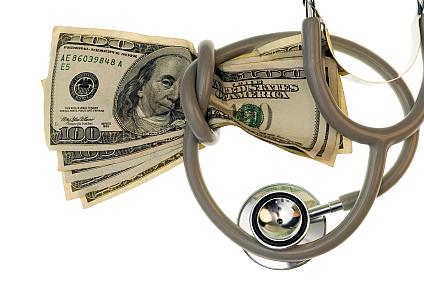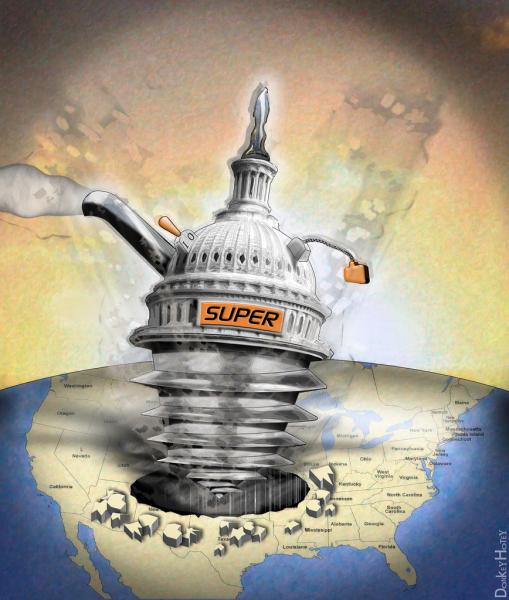The Not-So-Supercommittee: After Deal Failure, What's In Store for Healthcare?

 With the not-so-super Congressional supercommittee failing to reach a deficit-cutting deal by this week's deadline, there's plenty of new analysis about how the impasse may affect patients and health providers.
With the not-so-super Congressional supercommittee failing to reach a deficit-cutting deal by this week's deadline, there's plenty of new analysis about how the impasse may affect patients and health providers.
The automatic budget cuts triggered by the absence of a deal, known as sequestration, could have a profound impact on hospitals. National defense and domestic budgets now face $1.2 trillion in automatic, mandatory cuts that would take effect in 2013, although there are moves in Congress to do away with those automatic cuts.
Amy Bingham writes in the ABCNews.com blog The Note that health providers, rather than patients, would be hit hardest by these cuts:
The automatic cuts may not be so devastating on the non-defense spending side of the equation. Both Medicaid and Social Security are spared from the funding reductions and Medicare cuts are limited to 2 percent of the entitlement program's budget.
Medicare will lose about $123 billion between 2013 and 2021. But that entire amount will come out of the pockets of doctors and hospitals, not grandma and grandpa.
Doctors face a 24.7 percent cut in their reimbursements for treating Medicare patients, although a short-term fix will probably be passed by the end of the year as has happened many times in the past.
Non-profit hospitals face a 29 percent cut in revenues, according to the data-crunchers at Fitch Ratings.
Looking forward, Marilyn Werber Serafini and Mary Agnes Carey of Kaiser Health News examine how health care leaders are prepping for the post-election debate over health spending, hoping to move the conversation away from shifting costs from one health care sector to another to actually lowering costs across the entire system.
In an update after the supercommittee announced its failure to reach a deal, Serafini and Carey offered detailed examination of how various health stakeholders would be affected by the trigger cuts, including public health agencies, AIDS medication programs and medical research facilities in addition to hospitals.
With the not-so-super Congressional supercommittee failing to reach a deficit-cutting deal by this week's deadline, there's plenty of new analysis about how the impasse may affect patients and health providers.
The automatic budget cuts triggered by the absence of a deal, known as sequestration, could have a profound impact on hospitals. National defense and domestic budgets now face $1.2 trillion in automatic, mandatory cuts that would take effect in 2013, although there are moves in Congress to do away with those automatic cuts.
Amy Bingham writes in the ABCNews.com blog The Note that health providers, rather than patients, would be hit hardest by these cuts:
The automatic cuts may not be so devastating on the non-defense spending side of the equation. Both Medicaid and Social Security are spared from the funding reductions and Medicare cuts are limited to 2 percent of the entitlement program's budget.
Medicare will lose about $123 billion between 2013 and 2021. But that entire amount will come out of the pockets of doctors and hospitals, not grandma and grandpa.
Doctors face a 24.7 percent cut in their reimbursements for treating Medicare patients, although a short-term fix will probably be passed by the end of the year as has happened many times in the past.
Non-profit hospitals face a 29 percent cut in revenues, according to the data-crunchers at Fitch Ratings.
Looking forward, Marilyn Werber Serafini and Mary Agnes Carey of Kaiser Health News examine how health care leaders are prepping for the post-election debate over health spending, hoping to move the conversation away from shifting costs from one health care sector to another to actually lowering costs across the entire system.
In an update after the supercommittee announced its failure to reach a deal, Serafini and Carey offered detailed examination of how various health stakeholders would be affected by the trigger cuts, including public health agencies, AIDS medication programs and medical research facilities in addition to hospitals.
Photo credit: DonkeyHotey via Flickr

